China-U.S. relations over the next four years will depend on the outcome of the coming November presidential election, which is less than 30 days away. Therefore, whether the American voters realize it or not, they will not only decide the next president of the U.S., but also the future of China-US relations. It’s this reason alone why Trump intensifies his attacks on China.
Yesterday, desperate to catch up with Democratic presidential nominee Joe Biden, President Donald Trump again sharpened his attacks on China – warning that Beijing will “pay a big price” for its role in the Coronavirus pandemic. Likewise, Vice President Mike Pence also faulted China during Wednesday’s vice presidential debate for the virus.
Referring to the Covid-19 as the “China Virus” or a “Chinese Plague”, Trump continued his political rhetoric, claiming the virus was “sent by China”. During an interview with Fox Business, Trump predicted that China will give his presidency (if he wins the coming election) a favourable trade deal because the Chinese want to keep him happy.
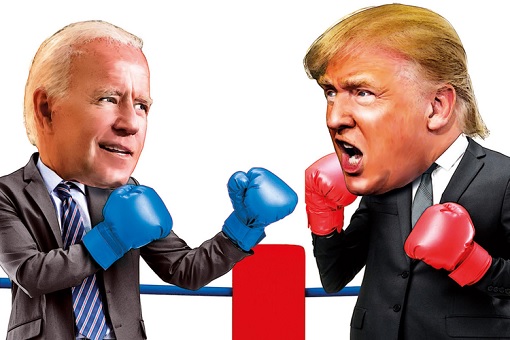
Refused to play into the hands of the U.S. president, Beijing has decided not to respond. Should Beijing retaliate, it would provide Trump with ammunition in the current presidential election, which is seeing Joe Biden leads the race to the White House. By hook or by crook, Trump wanted to win the “who-is-the-toughest-on-China” contest.
Interestingly, during the same U.S. vice presidential debate, both Vice President Mike Pence and Senator Kamala Harris dodged a question – is China a competitor, adversary or enemy? While Pence went after the Democrats’ record on trade, Kamala went after Trump’s slow response and wrong approach on Covid-19, leading to losses of American lives, jobs and reputation.
Analysts consider that as a sign that both Pence and Harris want to leave some room to moderate relations with China in the future as China-US ties hit their lowest point in decades under Trump administration. In general, the Democrats, unlike the Republicans, want to get out of the trade war created by Donald Trump, let alone involves in a new Cold War with China.
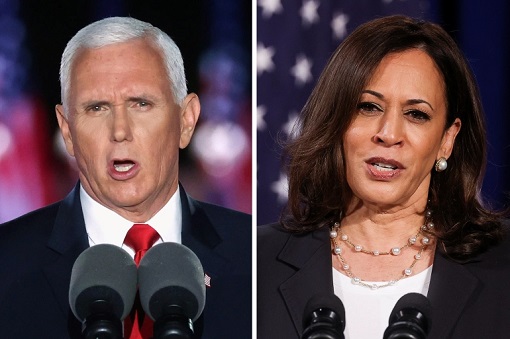
Biden actually was among the first U.S. senators to travel to Beijing after China and the United States forged diplomatic ties in January 1979. When then-Vice President Joe Biden visited his counterpart, Chinese Vice President Xi Jinping in Beijing in 2011, he recalled his two previous visits to China back to 1979 and 2001, highlighted his meeting with late Chinese leader Deng Xiaoping.
As the U.S. Vice President, Biden said in a 2011 speech – “I believed in 1979 and I believe now that a rising China is a positive development.” It was only after he becomes Democratic presidential nominee and consistently being criticized by Trump for being “weak” on China that Biden started to get increasingly tough, or pretended to be tough, on Beijing.
Trump’s re-election campaign has spent a whopping US$10 million in attack advertisement against Joe Biden, calling him “Beijing Biden” for being too friendly toward China. In his bid for the White House, Biden was forced to criticize Beijing on Xinjiang, Hong Kong, South China Sea, and trade issues. He even called President Xi Jinping a “thug” and labelled the Xinjiang issue as “genocide”.
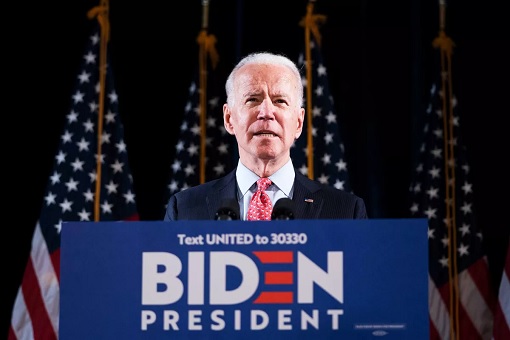
So the burning question is whether Biden would press ahead with tariffs and other punitive measures pursued by the Trump administration if he wins in November. If he takes the brakes off any of the tough measures put in place by Trump, the new president would be seen as a weak president. But being excessively combative with Beijing could make things worse.
Max Baucus, who was appointed ambassador to China by President Barack Obama in 2014, said Biden would most likely deal with Beijing in a “much more traditional” way if he wins the election. Biden’s first priority is to fix domestic issues on American soil – economy, jobs and defeating Covid-19. He will take his time re-establishing a relationship with China.
In essence, there will be a “reset” in bilateral diplomatic relations between both nations if Biden becomes the new POTUS. A Biden administration would like to work more closely with China in cooperating on global challenges like the Coronavirus pandemic and climate change. Likewise, Biden also wants to sell more soybeans, semiconductors and whatnot to China.
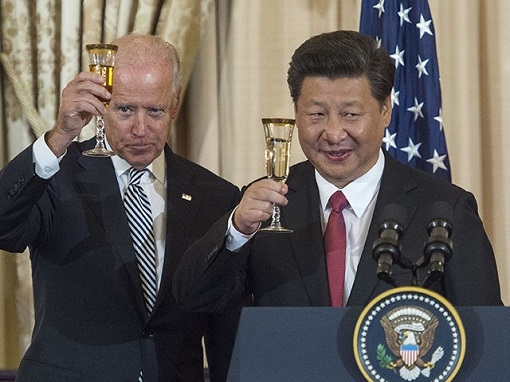
Therefore, Biden will try to be less aggressive on the existing trade war and to avoid a new Cold War with China. He would not go alone like Trump to fight China, but to rebuild the U.S. alliance first, which has been badly damaged by Trump administration. That would certainly give China some breathing space after years of trade and tech wars with Donald Trump.
However, most analysts believe that a new Biden administration will have no choice but to remain tough toward China, at least temporarily, especially on issues like national security. His campaign has pledged to continue curbing China’s influence in high-tech sectors like artificial intelligence and 5G wireless technology – the tech war – under the pretext of national security.
Even if he wants to, Biden cannot go back to the Clinton-era or Obama policies due to the anti-Chinese sentiment in America. Trump has done an excellent job on his anti-Chinese fear mongering exercise. According to a recent Pew Research Centre survey, negative views of China reached the “highest points” in 14 countries, mostly the Western nations.
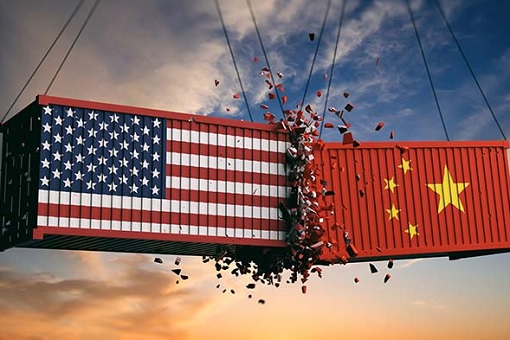
However, as Trump and Biden try to outdo each other in talking tough about China, it’s also true that based on polls, Trump has failed to turn his Chinese bashing into a political advantage. The result can be seen with Biden ahead of Trump for the White House. Donald Trump’s “get tough” policies have so far failed to intimidate, let alone change China’s behaviour.
Since entering the Senate in the 1970s, Biden has always been known as a pragmatist, a person who is willing to compromise. He can vow to stand up to China, but at the same time, he would likely remain open to cooperation on some major issues such as climate change, counterterrorism and curbing the nuclear ambitions of North Korea and Iran. There’re many ways to skin a cat.
But China is well prepared for the worst. In fact, when push comes to shove, the country can survive without the U.S. at all. There’s a reason why the Chinese cannot be bullied like the Japanese by the U.S. The trade war has forced it to adopt a new strategy of turning inward to rely on domestic consumption. Last year, it was revealed that external trade formed only 18% of its GDP (gross domestic product).

In fact, Deutsche Bank reported that as much as 80% of China’s exports went to countries other than the U.S. Despite the Covid-19 outbreak dealt a severe blow to China’s economy, the retail sales data of August 2020 shows a rise of 0.5% year-on-year. Apparently, China’s middle-income group has reached 400 million, more than the total population of the United States.
The latest data from this year’s eight-day holiday, known as the “Golden Week”, which combined National Day and the Mid-Autumn Festival, also shows an encouraging growth. The retail and restaurant sales alone reached 1.6 trillion Yuan (US$235.5 billion), with daily sales up 4.9% compared to last year’s seven-day holiday.
Aside from depending heavily on the Chinese for providing the low-cost goods, the U.S. appears to have forgotten that China also provides funding for its budget deficits. Even though Japan has surpassed China as the largest foreign holder of U.S. Treasury securities in June, the Chinese still hold US$1.11 trillion of U.S. debt papers.
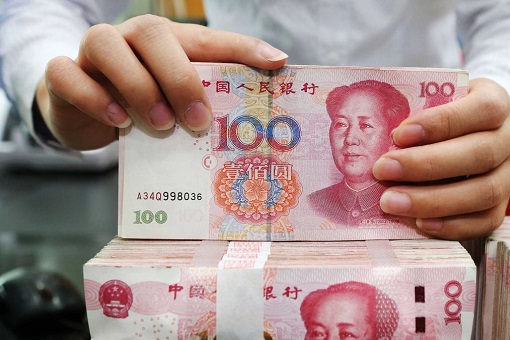
In the same breath, China will not and cannot be intimidated on the issues like military tensions in the South China Sea or Taiwan issue. Go ahead, tell Taiwan to officially declare Independence and see what will happen. For years, economists thought China’s economy depends on the world. But McKinsey research last year showed otherwise.
Other Articles That May Interest You …
- After Chinese Poked Fun At Trump’s Covid-19 Infection, Now Italians Tell The U.S. President – “This Is Karma”
- TikTok & WeChat Win The Day – Trump Agrees To TikTok Deal While U.S. Judge Blocks The President’s Ban On WeChat
- Economic Inequality Could Break Trump As His Election Campaign Spends $800 Million Without Much Effect
- Trump’s Ban On WeChat Will Backfire On Apple – Chinese Users To Throw Away iPhones Without WeChat
- Coronavirus Inquiry Backfired On Aussie – China Slaps Tariffs, Warns It Has The Power To Hurt Australia Economy
- Economists Thought China’s Economy Depends On The World – But McKinsey Research Shows Otherwise
- From Trade War To Tech War – After 5G Technology, The US Aims To Cripple China’s Artificial Intelligence
- “You Cannot Crush Us” – Huawei Founder Warned About Shifting Investment From The U.S. To U.K.
- Huawei Strikes Back – U.S. Fears Of Being Left Behind, Fails To Hack Into Huawei To Spy
- China Invasion – Top 10 American Iconic Brands Now Owned By Chinese

|
|
October 9th, 2020 by financetwitter
|


|

|

|

|

|

|




























Comments
Add your comment now.
Leave a Reply